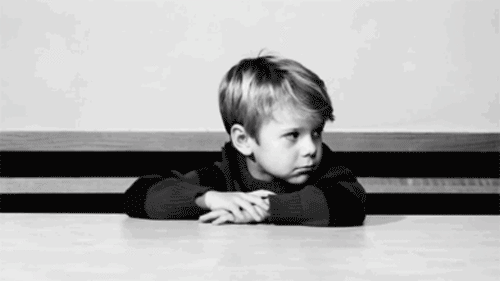543
How to teach a child to hold the word
It is believed that very important to be able to keep his word. And, really, when a grown man does not promise, it is unpleasant to be around. So many parents think that the child ought to study since childhood to keep his word and fulfill promises. But how to do it? One way is to take the child promise not to do something and expect that it is a promise. Not the best way. Unfortunately, it happens that the children do not keep their word. Let's look at why this is happening.
And adults always keep their word? Dad promised to come home early, but was delayed at work. Did not fulfill the promise. But the Pope believes that he serious circumstances (the chief was arrested, the car broke down, etc.). He did not believe that broke the promise. But when a child is promised to come from the street at a certain time and showed up an hour later (I wanted to play football), that same dad scolds son and says that he can't fulfill his promises. We, adults, see the difference between the late Pope and the late son. And children adults often seem less important. But for a child it is as important as the business of the Pope.

On the other hand, dad was late because I went after work with friends in a cafe. And for dad it is also a good reason to not keep the promise. What I'm saying? Promises need to be careful. It is important to understand that not all promises are fulfilled not only by children but also adults. Therefore, dear adults, don't make promises that you cannot perform, try to perform all that is promised child!
Here is another example. Mom promised five-year-old Sonya to buy an expensive stroller for dolls. Promised and forgot. But Sonya remembers. And requests the stroller. Mom seems to be a promise to perform, and the stroller do not want to buy. Then mom at some point "catches" the heavy sleeper that she has not fulfilled the promise: he promised not to stain your dress for a walk and got dirty. And my mother says to the son: "You do not keep their promises, and I will not run. Not buying you a stroller". Cheated mom, right?
When an adult (parent or teacher) takes a child or adolescent some promise (not to jump up on the couch, to indulge, to learn, not to smoke, etc.), the promise is verbalizing the fact that the adult wants from the child. Let me remind you that, according to the dictionary Ozhegova, "the promise is a voluntary commitment to do something." If you're an adult and makes a promise to himself ("Promise me you won't ..."), the child often remains nothing how to agree. And the child nods his head, "I Promise." However, note that in this case the initiative belongs to the adult. The child was not the initiator of that promise. That is why the child is not always easy to fulfill the promise. Often for the child a nod of the head ("promise") is a way to stop the parent notation. Not formulate pledges for the child! This should make the child!
The next important thing that you need to discuss compliance with the promise to age norms. Is it always the promise that you took from the child, his ability to perform? So, a boy of three can quite honestly promise you that I never will select toys for year-old sister. However, after a few minutes he can break his promise. The boy was genuinely going to fulfill the promise. Therefore, take the promise in preschoolers need to be cautious. It is important to understand what promise the child to keep, and what – not.
As for the students, you should not take with them the promises concerning grades. Many students, September 1 going to school, promise ourselves to study only five. Remember, as in the eponymous book by Nikolai Nosov, Victor Maleev gave a promise not to get bad marks and even wrote about this article in the newspaper? He wanted to keep his word, but such promises are not so easy to perform. So let's start small. You can set rules that the student agrees to comply. Every family has its own rules. This household duties and return home at a certain time, preparing lessons, school fees.
But how is it to convey to the child that it is important to do what you promise if the child is still not able to keep that promise? To wait until school? No, we will not do. Of course, most importantly – the environment that surrounds the child. If adults fulfill the promises that give the child and to each other, the child naturally absorbs these family rules. If to speak about a purposeful action that is best for the child learning through the examples of others and his own. So, it could be fiction.
If you read the child a story in which the hero does not fulfill his promise, be sure after reading discuss the situation. Well did the hero? Is it possible to do so? How to act? Don't neglect the stories about the "other children" that you can come up with themselves. For example, you can tell your daughter or son the story about the kid who promised mom to clean the toys and didn't. Mom is really tired and she became a night to put toys away.
However, reading fiction, be careful. For example, the story "word of honor" by L. Panteleyev. He teaches that to keep his word must, come what may. To its detriment, only because he gave it.
Are you sure that you want your child in whatever was to keep his word? Pay attention of the child that whoever took the boy honestly, he did not keep his word. You may want to pay attention to the fact that sometimes there are situations when to keep the word can't. Rather, the situation is changing in such a way that to keep the word impossible. At the same time honestly tell us about yourself. After all, surely there were occasions when you wanted to fulfill the promise, but some circumstances prevented you?

And last, what is important to pay attention to is the form of promises. It is not necessary to take the child promises that he can't probably fulfill, it is better to ask him: "please, try not to fight on the street", "Try not to forget the indoor shoes at school", etc. Even if the child promises and tries by all means to fulfill the promise, circumstances may prevent it. Like the Pope, who was detained by the chief...
To be able to fulfill the promise – it is important. So be sure to praise your child if he kept his promise to you. If to keep the promise has failed, be sure to discuss why it happened. This will help the child in the future to be more attentive to yourself and your promises.
Author: Yulia Guseva
P. S. And remember, just changing your mind — together we change the world! ©
Source: mchildren.ru/derzhat-slovo/
And adults always keep their word? Dad promised to come home early, but was delayed at work. Did not fulfill the promise. But the Pope believes that he serious circumstances (the chief was arrested, the car broke down, etc.). He did not believe that broke the promise. But when a child is promised to come from the street at a certain time and showed up an hour later (I wanted to play football), that same dad scolds son and says that he can't fulfill his promises. We, adults, see the difference between the late Pope and the late son. And children adults often seem less important. But for a child it is as important as the business of the Pope.

On the other hand, dad was late because I went after work with friends in a cafe. And for dad it is also a good reason to not keep the promise. What I'm saying? Promises need to be careful. It is important to understand that not all promises are fulfilled not only by children but also adults. Therefore, dear adults, don't make promises that you cannot perform, try to perform all that is promised child!
Here is another example. Mom promised five-year-old Sonya to buy an expensive stroller for dolls. Promised and forgot. But Sonya remembers. And requests the stroller. Mom seems to be a promise to perform, and the stroller do not want to buy. Then mom at some point "catches" the heavy sleeper that she has not fulfilled the promise: he promised not to stain your dress for a walk and got dirty. And my mother says to the son: "You do not keep their promises, and I will not run. Not buying you a stroller". Cheated mom, right?
When an adult (parent or teacher) takes a child or adolescent some promise (not to jump up on the couch, to indulge, to learn, not to smoke, etc.), the promise is verbalizing the fact that the adult wants from the child. Let me remind you that, according to the dictionary Ozhegova, "the promise is a voluntary commitment to do something." If you're an adult and makes a promise to himself ("Promise me you won't ..."), the child often remains nothing how to agree. And the child nods his head, "I Promise." However, note that in this case the initiative belongs to the adult. The child was not the initiator of that promise. That is why the child is not always easy to fulfill the promise. Often for the child a nod of the head ("promise") is a way to stop the parent notation. Not formulate pledges for the child! This should make the child!
The next important thing that you need to discuss compliance with the promise to age norms. Is it always the promise that you took from the child, his ability to perform? So, a boy of three can quite honestly promise you that I never will select toys for year-old sister. However, after a few minutes he can break his promise. The boy was genuinely going to fulfill the promise. Therefore, take the promise in preschoolers need to be cautious. It is important to understand what promise the child to keep, and what – not.
As for the students, you should not take with them the promises concerning grades. Many students, September 1 going to school, promise ourselves to study only five. Remember, as in the eponymous book by Nikolai Nosov, Victor Maleev gave a promise not to get bad marks and even wrote about this article in the newspaper? He wanted to keep his word, but such promises are not so easy to perform. So let's start small. You can set rules that the student agrees to comply. Every family has its own rules. This household duties and return home at a certain time, preparing lessons, school fees.
But how is it to convey to the child that it is important to do what you promise if the child is still not able to keep that promise? To wait until school? No, we will not do. Of course, most importantly – the environment that surrounds the child. If adults fulfill the promises that give the child and to each other, the child naturally absorbs these family rules. If to speak about a purposeful action that is best for the child learning through the examples of others and his own. So, it could be fiction.
If you read the child a story in which the hero does not fulfill his promise, be sure after reading discuss the situation. Well did the hero? Is it possible to do so? How to act? Don't neglect the stories about the "other children" that you can come up with themselves. For example, you can tell your daughter or son the story about the kid who promised mom to clean the toys and didn't. Mom is really tired and she became a night to put toys away.
However, reading fiction, be careful. For example, the story "word of honor" by L. Panteleyev. He teaches that to keep his word must, come what may. To its detriment, only because he gave it.
Are you sure that you want your child in whatever was to keep his word? Pay attention of the child that whoever took the boy honestly, he did not keep his word. You may want to pay attention to the fact that sometimes there are situations when to keep the word can't. Rather, the situation is changing in such a way that to keep the word impossible. At the same time honestly tell us about yourself. After all, surely there were occasions when you wanted to fulfill the promise, but some circumstances prevented you?

And last, what is important to pay attention to is the form of promises. It is not necessary to take the child promises that he can't probably fulfill, it is better to ask him: "please, try not to fight on the street", "Try not to forget the indoor shoes at school", etc. Even if the child promises and tries by all means to fulfill the promise, circumstances may prevent it. Like the Pope, who was detained by the chief...
To be able to fulfill the promise – it is important. So be sure to praise your child if he kept his promise to you. If to keep the promise has failed, be sure to discuss why it happened. This will help the child in the future to be more attentive to yourself and your promises.
Author: Yulia Guseva
P. S. And remember, just changing your mind — together we change the world! ©
Source: mchildren.ru/derzhat-slovo/
Ideas for Breakfast, lunch and snack is quick and healthy!
18 MAGICAL and inexpensive means for youth and beauty























